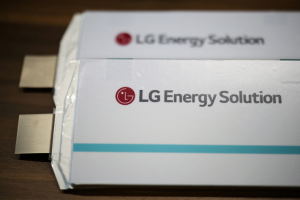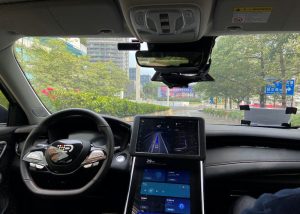Germany’s commercial links with China have been surpassed by its increasing trade with the United States, a ‘pivot’ that became apparent in the first quarter.
So, while Economy Minister Robert Habeck will underline Germany’s resolve to maintain strong links with China during a visit to Beijing that started on Friday, analysts are already saying economic and political factors increasingly favour the US-German relationship.
Habeck will be seeking to explain to Chinese officials the European Union’s recent announcement of tariffs on Chinese electric vehicles, while allaying the risk of retaliation from China that could harm German export business there.
ALSO SEE: Huawei Chair Lauds Group’s Progress on Operating System, AI
China no longer its top trading partner
Already, Germany’s 60 billion euros ($64 billion) of trade with China in the first quarter of 2024 was less than the 63-billion-euro total volume of US-German trade. That snapped a trend that has ranked China as Germany’s top trading partner for eight years in a row.
Official figures released on Friday underlined the shift: German exports to China fell 14% in May from a year ago while exports to the United States rose 4.1%.
Habeck has arrived in Beijing at a difficult moment, as China has warned the EU about the possibility of a ‘trade war’ if friction over electric vehicles and other issues escalate.
Beijing has expressed dissatisfaction with the EU’s recent decision to impose additional tariffs of up to 38% on electric vehicles made China. It has called for dialogue, saying differences should be resolved through discussion and negotiation.
Lobby groups in China have been venting their concern about the move, but it is not yet known whether a deal can be negotiated to the satisfaction of both sides.
That has led to analysts warning that China’s unhappiness about the EV tariffs could spur a trade conflict that spreads to other sectors, and could have significant ramifications for the global economy.
The trade tension has come at a time when China is enduring an economic slowdown. A real estate crisis, high local government debt and other challenges are depressing domestic Chinese activity, prompting some to suggest it could face a period of stagnation similar to Japan’s “lost decades” starting in the 1990s.
Maximilian Butek, executive director of the German Chamber of Commerce in East China, said German trading partners for the time being remained committed to a Chinese market they believed would see a recovery in demand in the next few years.
“However, if confidence in the private sector and among consumers in China remains low, it is possible the United States will be able to establish itself as Germany’s leading trading partner,” he said of a possible consolidation of the US lead.
The growth in German exports is already being dampened by the fact that China – long a customer for its vehicles, machinery and pharmaceutical products – is moving up the value chain ladder and so producing more complex goods itself.
Concern on ‘unfair practices’, Trump impact
But the bigger question is how deep an impact there will be from Germany’s stated intention of reducing its overall trade exposure to China, which it accused of “unfair practices” in its first China strategy document last year.
Beyond signalling its desire to deepen ties with partners such as South Korea, Berlin so far has been vague on policy steps to reduce dependencies.
But Juergen Matthes, head of international economic policy at the German Economic Institute IW, saw the start of a paradigm shift away from the close China-Germany relationship nurtured by former Chancellor Angela Merkel through the 2000s.
“A reorientation – also geopolitically motivated – seems to be taking place: away from system rival China and towards trans-Atlantic partner the United States,” he said.
If Donald Trump were to win the US election in November and push the United States on a more protectionist path by raising tariffs on imports from all destinations, then all bets would be off in what could escalate into a global trade war.
A report by consulting firm Roland Berger this month concluded that such a scenario would have a devastating effect on all major economies, with China and the United States suffering even more than Europe.
Longer term, it would have the potential to split the planet into two mutually incompatible trading blocs – an extreme form of the global economic “fragmentation” that the International Monetary Fund has been warning of.
That would create stark commercial and geopolitical choices for export-oriented economies like Germany.
“Trump will force Europeans to decide on which side they want to be – with China or with the United States,” Roland Berger’s global managing partner Stefan Schaible said, adding that there was no doubt that Germany would have to choose its NATO ally.
- Reuters with additional editing by Jim Pollard
NOTE: Additional text was added to this report on June 21, 2024.
ALSO SEE:
China EV Firms Scaling Back European Plans Over Subsidy Probe
Chinese Carmakers Call For 25% Retaliatory Tariffs on EU Cars
European Farmers Fear Trade War With China Over EV Tariffs
China’s Probe Into EU Pork ‘Dumping’ Seen as Trade Retaliation
EU Tariff Fallout: China Warns of WTO Suit, Tesla to Hike Prices
As EU Eyes Tariffs, European States Chase China EV Factories
China’s Free Trade Olive Branch to EU Amid Subsidy Probes
BYD’s First Vehicle Charter Sets Sail for Europe Loaded With 5,000 EVs
























